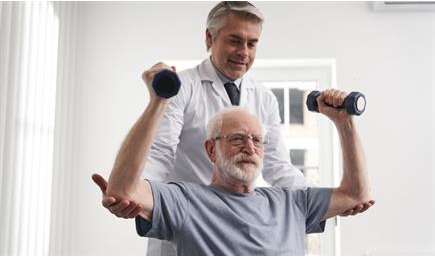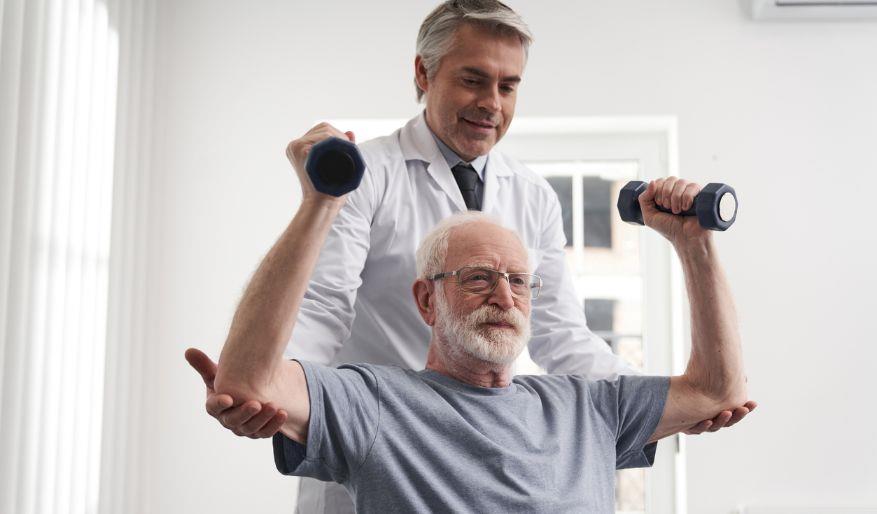Our Doctors
Meet all the doctors from Cleveland Clinic Abu Dhabi.
View Doctors
How to manage life after surviving a stroke

Surviving a stroke holds significant impact on anyone’s life, but the disabilities that result from the stroke could slow you down in the near and far future. Stroke rehabilitation is absolutely essential to ensure you save as much function as you can, as well as prevent further complications.
Recovery from a stroke is different for everyone. Many people will recover fully, while others will suffer physical complications such as total paralysis, loss of sensory functions, inability tocommunicate verbally, and memory loss. Recovery is not a fast process, however the benefit of rehabilitation to overcome these limitations, by protecting any future complications and relearning any lost functions, is key to helping patients live life to the fullest once again.
Rehabilitation is the process of relearning and retraining the body and brain to perform functions that were lost due to the stroke. Depending on the severity, and the location of the damage in the brain, the loss or lack of functions forms the basis of the rehabilitation program. This could mean working to restore the ability to perform everyday functions unaided, such as standing, walking, bathing, eating, or dressing, or regaining communication if speech has been compromised.
The rehabilitation process starts immediately after the stroke occurs, ideally within 24-48 hours . As soon as the stroke patient is stabilized, the first steps involve encouraging independent movement of the affected side of the body, through a series of ‘passive’ and ‘active’ tasks with the assistance of therapists.
Rehabilitation requires a multidisciplinary approach, with a range of specialists working together to assess each patient’s specific needs, in order to develop a treatment plan that is tailored to their specific goals.
Friends, family, and even stroke survivor support groups can play a huge role in the recovery journey – both physically and psychologically. Speak up and communicate with your circle on the type of support you want to receive and what they can do to help you. It takes a team approach for any medical procedure, so it also takes a team to help support you with recovery and regaining your independence.
Learn more about our Neuro-rehabilitation Program.
.jpg)

Obesity health risks factors & causes: There are several factors linked to an increased risk of...
Read Articles